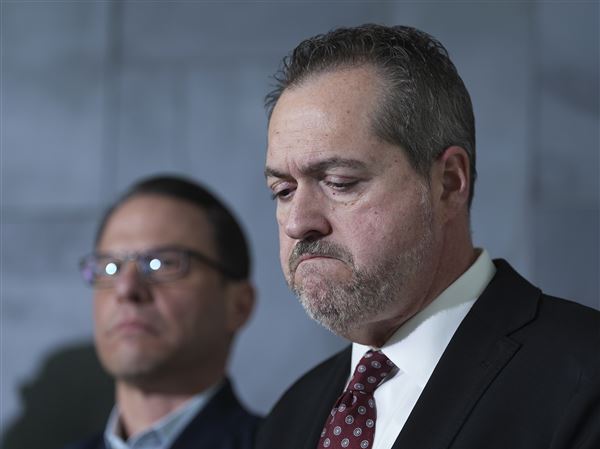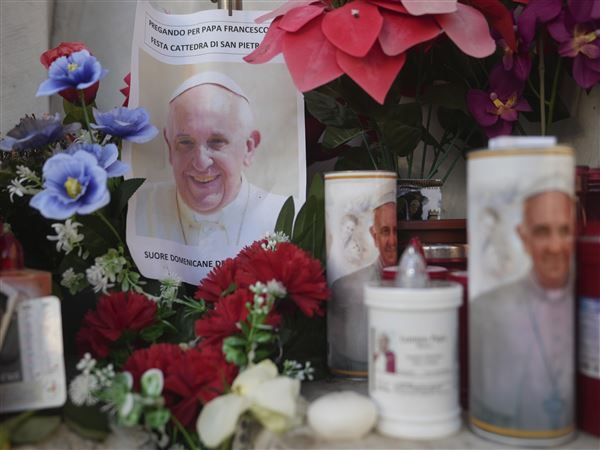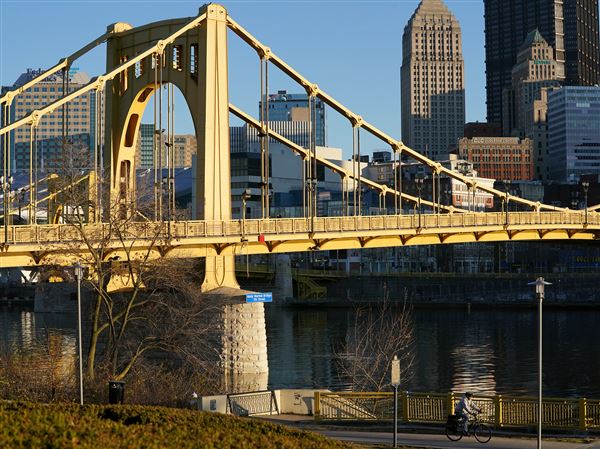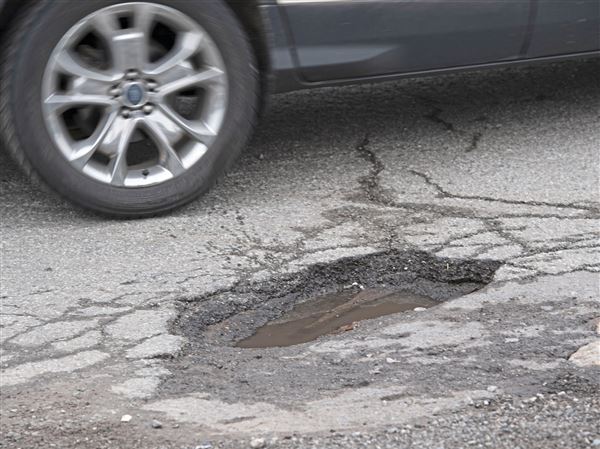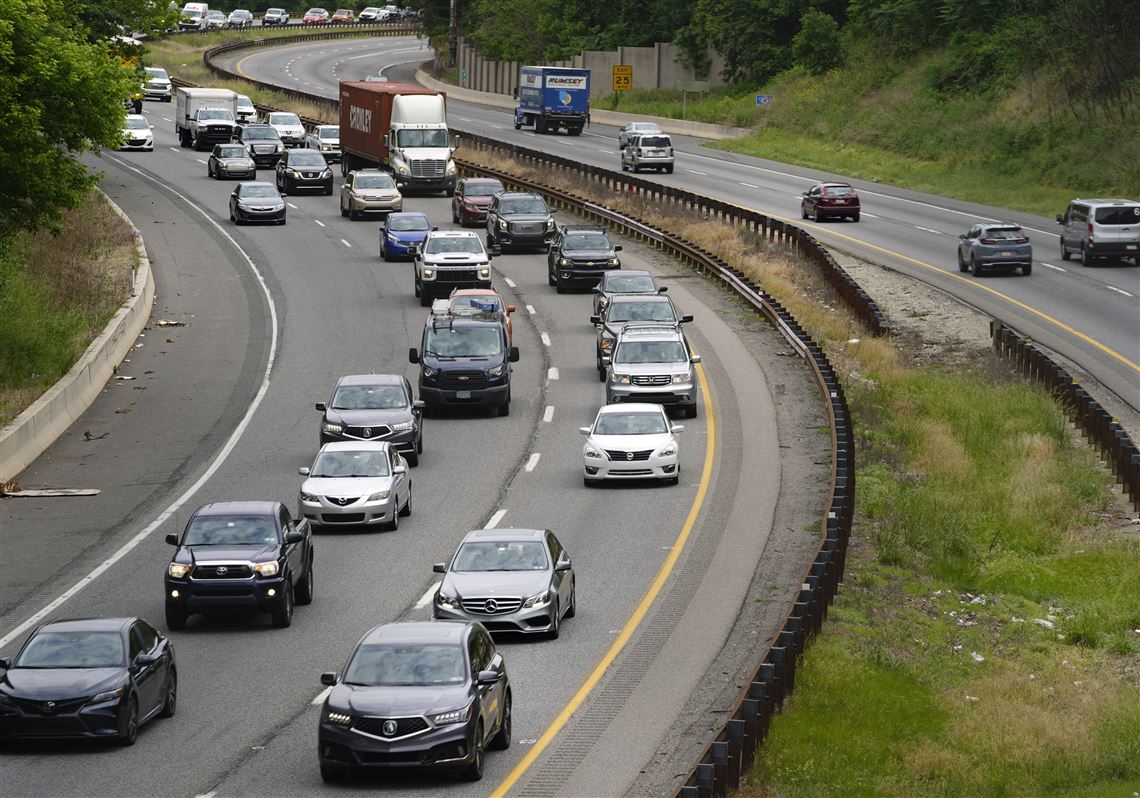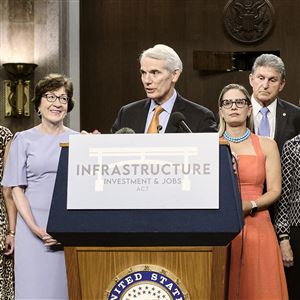A state commission is finalizing a wide range of recommendations to increase funding for Pennsylvania’s aging infrastructure while eliminating the gasoline tax. But turning the majority of the proposal’s recommendations into law will take approval by the legislature.
The Transportation Revenue Options Commission, created under an executive order signed by Gov. Tom Wolf, met for the final time Wednesday with the goal of submitting their 39-page report on Friday. But they will still have to work to gain support for their recommendations by the administration and General Assembly.
“There is information that this report provides. And it is... an option of starting points of discussion, points of things that the administration and our legislators can look at and say, ‘we need more data,’ ‘we need more information,’ ‘we want to move this forward’ or ‘we need to reconsider in a different way or different aspects,’” commission member Leeann Sherman, from the American Council of Engineering Companies of Pennsylvania, said.
Pennsylvania relies heavily on the gasoline tax to come up with transportation revenue each year, with 78% of the total transportation revenue coming from the gasoline tax in Pennsylvania, the highest of any of the surrounding states, according to the commission. New York relies on it the least, with the gasoline tax making up 18% of its transportation revenue.
This has caused difficulties because the gasoline tax has been relatively flat for the past few years due to a transition toward more efficient vehicles and the increase in the use of electric cars.
The report outlines changes that would occur in three phases. The proposals would generate $3.5 billion annually in the first phase, $6.6 billion annually in the second phase and $11.5 billion annually in the third phase. During phase three, which would be in five or more years after the proposals went into action, the funding gap would close.
The largest new revenue source would come from establishing a tax of 8.1 cents a mile for each mile that a vehicle is driven in Pennsylvania. The commission also proposes establishing a pilot Mileage-Based User Fee for electric vehicles.
Another proposal is to charge $1 for every package delivered by large corporations like Amazon, UPS and FedEx, as well as deliveries from local groceries and restaurants. This type of package delivery fee would be the first time a state would implement such legislation.
On top of that, transportation providers like Uber and Lyft would be charged $1.11 for each trip, if that proposal is passed into law.
The commission is also advocating for increasing vehicle registration and vehicle rental fees. Aircraft registration and jet fuel taxes would increase as well.
A PDF of the entire report with the proposals will be released when the document is submitted on Friday.
PennDOT has a funding gap that is growing each year.
According to the commission, PennDOT’s current annual budget is $8.8 billion. It has determined that in order to keep the state-owned transportation system in good repair, PennDOT would need an $18.15 billion annual budget with increases for inflation.
Additionally, more than 2,500 bridges in the state were rated in poor condition in 2019, according to PennDOT. That is almost 10% of the number of bridges that the state has under its purview.
During the meeting, the members also mentioned that they had added information to their proposal about local transportation funding, which they note is also inadequate, with the current local unmet funding need estimated to be at $3.9 billion per year.
Commission Chair and Secretary of Transportation Yassmin Gramian, said during the meeting that it was her responsibility to determine if the report met the requirements of the governor's executive order. She said that she had revised the draft of the report and after completion of the final draft, she intends to deem it appropriate to submit to the governor and the legislature.
All of the potential revenue options would require legislative action except for tolling under certain circumstances, according to Alexis Campbell, the press secretary for the Department of Transportation.
During the meeting, commission members went over the next steps to get the proposals passed into law. Those steps include working with Mr. Wolf’s administration, establishing leadership and technical teams in order to support the General Assembly and administration, and securing sponsors to introduce the proposals as legislation.
The teams would ideally include members of the commission, transportation and community stakeholders, PennDOT staff and legislative staff, according to Ms. Campbell.
The commission also has a six-month timeline for action on the report, which should start at the governor’s budget presentation in February 2022, according to Ms. Gramian. By July 2022, she said, they should be working with the four caucuses to try to get them to endorse the proposals.
Boyce Buchanan: bbuchanan@post-gazette.com and Twitter @BuchananBoyce
First Published: July 28, 2021, 11:01 p.m.
